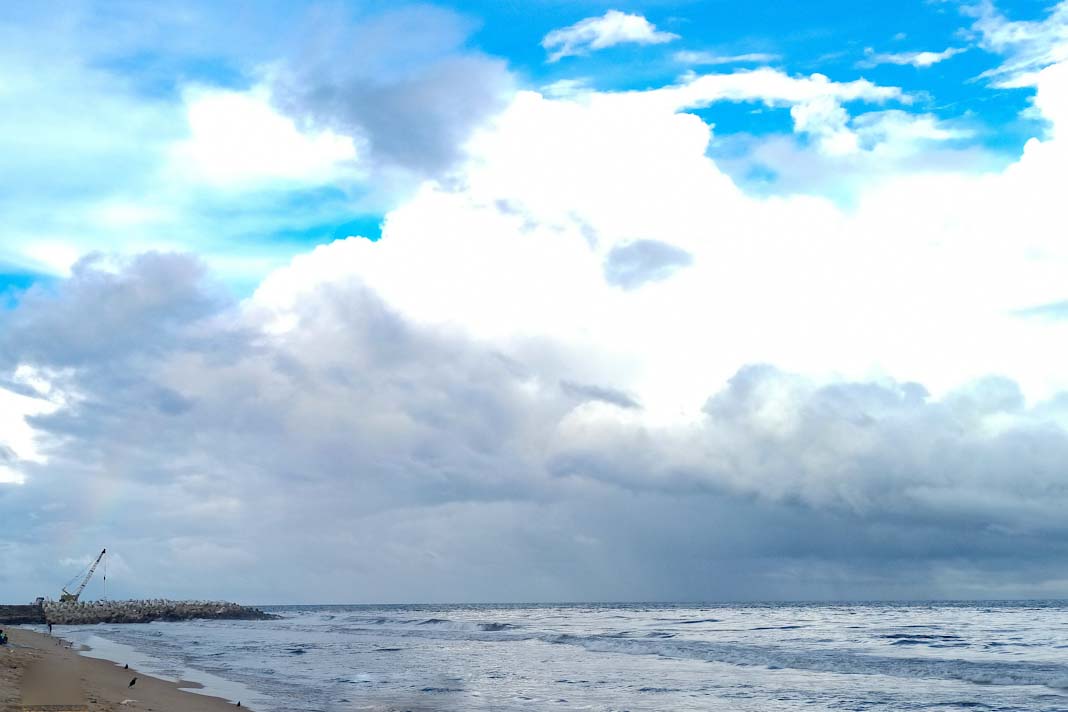
This September, Hanwha attended Gastech 2024, the world’s largest energy exhibition and conference for natural gas, LNG, climate technologies, and more in Houston, Texas, U.S. Held to drive lower carbon energy solutions, Gastech brings technical experts and key stakeholders from across the energy sector to address challenges and align on the path toward achieving the world’s net zero goals, according to an article published on their website.
Carbon dioxide Emissions
This year’s program centered around “transforming energy through vision, innovation, and action,” drawing 50,000 attendees, including 800 exhibitors representing 125 countries, to explore the latest strategies and innovations helping to move the clean energy transition forward. At this year’s event, Hanwha detailed its roadmap for maritime decarbonization, demonstrating the company’s commitment to greener shipping and marine decarbonization efforts.
The shipping industry, responsible for transporting 90% of the world’s traded goods according to the IMO, will be a critical player in the clean energy transition — making it a target area of significant development for Hanwha. Thanks to its cost-effectiveness and ability to move large-scale shipments efficiently across long distances, shipping will transport at least half of all net zero fuels worldwide. It will be critical in bridging the geographical gap between areas of rich energy production and consumption markets, integral to the global energy transition’s progress.
But ships themselves face their energy problem: as the third largest transportation emitter of CO2, they currently make up 11% of all transport emissions. Without stringent measures, these figures are expected to surge a further 50-250% by 2050, making the need for vessels to transport cleaner fuels — as well as use them for power — more important than ever.
Initiating change: Dual fuel engines and retrofitting
In the face of shipping’s growing footprint, implementing comprehensive carbon mitigation measures is critical. Though 100% carbon-free shipping has a way to go, we can begin to address the environmental impact of these crucial carriers through solutions that provide swift carbon reductions, as well as lay the foundation for lasting industry change.
One such solution is retrofitting existing engines with dual-fuel engines that burn a mixture of conventional and alternative fuels such as ammonia and methanol. Because these alternative fuels do not release CO2 when combusted, retrofitted engines generate fewer carbon emissions. Hanwha Power Systems is a notable player in this space offering these types of dual fuel conversions, making it easier for shipowners to adopt greener practices while entirely new fleets are still in development.
But these engines are not just for retrofitting older vessels. New vessels are being built with engines specifically designed for dual-fuel operation. Hanwha Engine is a leading producer of these engines which are powering the new era of lower-carbon shipping. Thanks to the synergistic expertise of the Hanwha ecosystem, Hanwha can offer streamlined, comprehensive solutions for both new and existing vessels. This integrative strategy ensures that fundamental progress toward net-zero shipping continues to be made.
Complementary decarbonization solutions: Digitization and the smart ship
Through its maritime decarbonization roadmap introduced at Gastech 2024, Hanwha further outlined its vision for future innovations that will help us achieve entirely decarbonized shipping.
As vital as they are, dual-fuel innovations are only part of the equation. To truly optimize decarbonization efforts, shipping companies must also employ complementary tech that provides insight and visibility over the ship’s energy consumption, so decisions that reduce the amount of carbon emitted can be made in real-time. While eco-friendly engine technology continues to be built out, other aspects like digitization and AI-powered software are set to significantly drive decarbonization progress. One report from Orca AI details how AI-powered sea navigation tech could reduce carbon emissions by 47 million tons a year by reducing the need for maneuvers and route deviation through instantaneous sea object risk alerts to crew members. Smart ship solutions, like Hanwha Ocean’s proprietary HS4 platform, allow shipowners visibility over important efficiency data in real-time, so they can optimize routes and adjust speed accordingly to reduce carbon emissions.
In addition, energy-saving technologies such as air lubrication systems and rotor sails, as well as onboard carbon capture and storage systems, offer ways to smartly design ships to minimize carbon impact, whether powered by traditional or eco-friendly engines. By offering integrated and flexible decarbonization solutions, Hanwha is providing shipowners with diverse options to comply with IMO regulations.






















